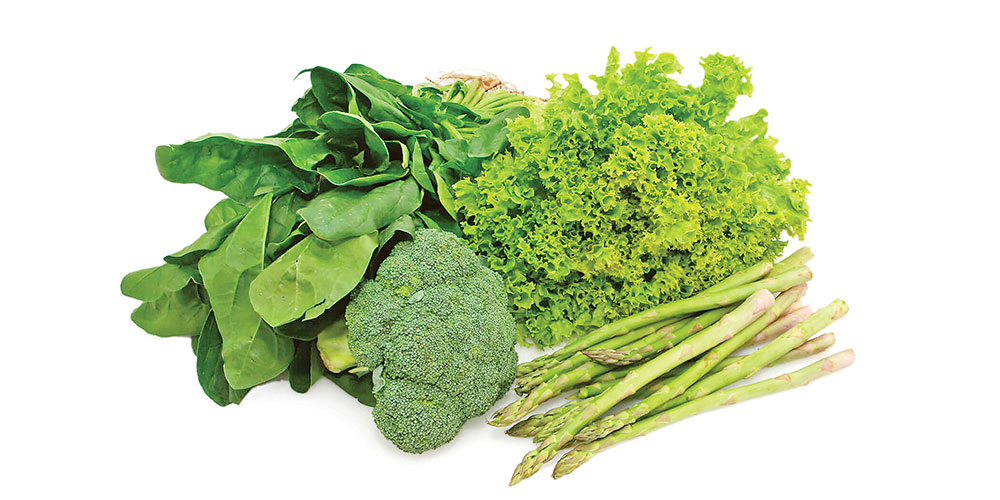Salt therapy – All you need to know
- 24 Feb - 01 Mar, 2024
Not all calories are equal. Different foods go through different metabolic directions in your body. They can have different effects on your hunger, appetite, hormones and the number of calories you burn. The amount of food you take matters a lot in your physical and mental wellbeing. You should always have a proper check and balance while you eat in order to attain a healthy lifestyle.

Once feared for being high in cholesterol, whole eggs have been making a comeback. Whole eggs neither adversely affect blood cholesterol nor cause heart attacks; what's more, they’re one of the best foods to eat if you need to lose weight, as they’re high in protein, healthy fats and can make you feel full with a very low amount of calories. Eating eggs for breakfast, instead of bagels or donuts increase feelings of fullness and make you eat less for the next 36 hours. Eggs are also incredibly nutrient dense and can help you get all the nutrients you need on a calorie-restricted diet. Interestingly, almost all the nutrients are found in the yolks.
Leafy greens include kale, spinach and fenugreek leaves. They have several properties that make them perfect for a weight loss diet, such as being low in calories and carbohydrates and extremely loaded with fiber. Eating leafy greens is a great way to increase the volume of your meals, without increasing the calories. Meals and diets with a low energy density make people eat fewer calories overall. Leafy greens are also incredibly nutritious and very high in many vitamins, antioxidants and minerals, including calcium.
Meat has been unfairly demoralised. It has been blamed for various health problems despite a lack of good evidence to back up these negative claims. Though processed meat is unhealthy, studies show that unprocessed red meat does not raise the risk of heart disease or diabetes. The truth is that meat is a weight-loss-friendly food because it's high in protein. Protein is by far the most filling nutrient, and eating a high-protein diet can make you burn up to 80–100 more calories per day. Eating unprocessed lean meat is an excellent way to increase your protein intake. Replacing some of the carbs or fat in your diet with protein could make it easier for you to lose excess fat.
Boiled potatoes are among the most filling foods. They’re particularly good at reducing your appetite, potentially suppressing your food intake later in the day. They contain an incredibly diverse range of nutrients, a little bit of almost everything you need. They’re particularly high in potassium, a nutrient that most people don't get enough of and that plays an important role in blood pressure control, by eating white, boiled potatoes, you will naturally feel full and eat less of other foods.
Here’s a pro tip: If you allow potatoes to cool for a while after boiling, they will form high amounts of resistant starch, a fiber-like substance which instigates various health benefits, including weight loss.
Tuna is another low-calorie, high-protein food. It is a lean fish, meaning it is low in fat. Tuna is popular among bodybuilders and fitness models that are on a cut, as it's a great way to increase protein intake while keeping total calories and fat low. Replacing other macronutrients, such as carbs or fat, with protein is an effective weight loss strategy on a calorie-restricted diet. If you're trying to emphasise protein intake, make sure to choose tuna canned in water, not oil.
Soups can be an effective part of a weight loss diet. Their high water content makes them very filling. Just make sure not to add too much fat to your soup, such as cream or coconut milk, as this can significantly increase its calorie content.ÊÊAnd try to avoid oily soups!
Apple cider vinegar is incredibly popular in the natural health community. And consider as a Holy Grail for the people who need to lose weight and stay fit. It’s often used in seasonings and salad dressings, and some people even dilute it in water and drink it. Taking vinegar at the same time as a high-carb meal can increase feelings of fullness and make people eat 200–275 fewer calories for the rest of the day.
Many factors determine a food's filling value, or how filling it is relative to its calorie content. Also, it measures food's ability to make you feel full, reduce your hunger and lower your calorie intake over the course of the day. Luckily, some foods simply do a better job at satisfying hunger and preventing overeating than others. The filling foods tend to have the following qualities:
High volume
The volume of food consumed strongly influences the fillingness. When foods contain a lot of water or air, the volume is increased without adding calories.
High protein
Protein is meant to be more filling than carbs and fat. Diets higher in protein increase satiety and lead to lower overall calorie intake than lower-protein diets do.
High fiber
Fiber provides the particular heaviness and helps you feel full. It also slows the movement of food through your digestive tract, which keeps you feeling fuller for longer, so if you eat foods with the above characteristics, then you can usually eat them until fullness without getting in too many calories.
Here are some of the foods that you can take that will help boost up the process of your weight loss journey.
COMMENTS